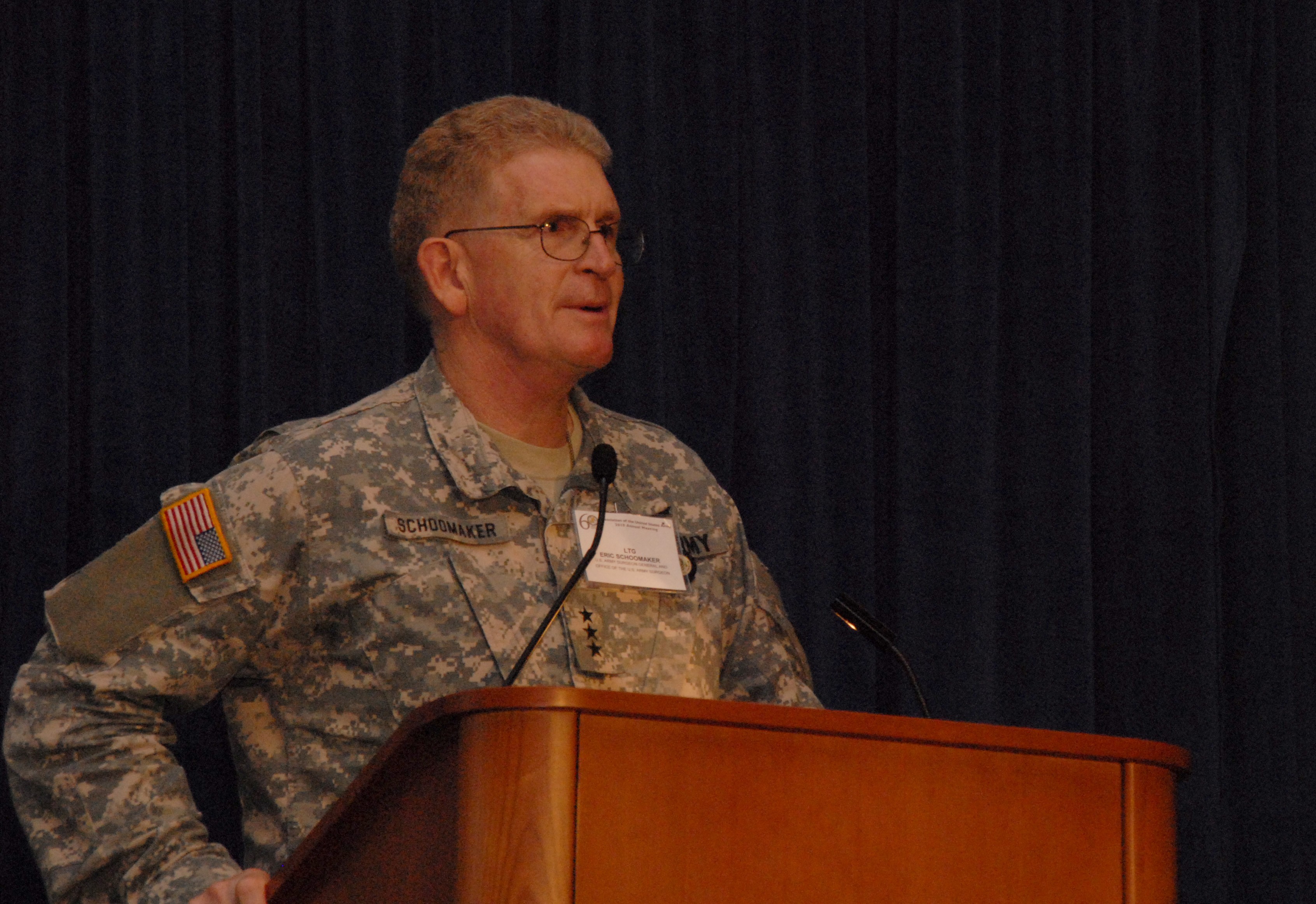WASHINGTON (Army News Service, Oct. 27, 2010) -- The Army's surgeon general announced a new partnership of trust between Soldiers and their families and Army Medical Command, based on improved access and continuity of care.
Lt. Gen. Eric B. Schoomaker, who is also the MEDCOM commander, spoke Wednesday at the third Family Forum at the Association of the United States Army's Annual Meeting and Exposition.
He said that of the 1.5 million beneficiaries enrolled in Army medicine, about 92 percent rated their overall satisfaction as either satisfied or very satisfied on recent surveys -- above the civilian average of 88 percent.
In addition to all the work MEDCOM does to care for Soldiers on and off the battlefield, it also cares for families, and Schoomaker credits these high marks in part to the patient-centered medical home initiative. He said PCMH is designed to build regular, ongoing relationships between patients and their primary care doctors, nurse practitioners and physician assistants. This is especially important for patients with chronic conditions like asthma or diabetes, he said, so those conditions can be managed to national standards of care, and patients can avoid long, sporadic trips to the emergency room.
"In fact, I feel so strongly about it, that we pay hospital commanders and clinics increasingly not for how much work they do in terms of visits to the emergency room or operations in the operating room, but rather, what does the health of the community and the individuals within it look like' And what's their satisfaction with the care'" he said, noting that Soldiers and their families are among the most highly educated and involved patients he's ever seen, and that they should demand the best care possible.
To ensure PCMH is working, he's been tracking it patient-by-patient for two years, to see how many times patients get back to their primary care managers, or at least their primary care teams "and my commanders know this because they get a little post-traumatic stress over how many times I've been in their face about it," he joked, adding that this year, hospital commanders will also receive incentives based on how well they manage the body mass indexes of children in their communities.
In addition to hiring more doctors and expanding capacity through TRICARE's network, Schoomaker is committed to immediate 24-7 access in an emergency, and strives for seven days for routine appointments and 30 days for a consult. He added that Army doctors recognize that medical facilities are often where the troops -- and not necessarily families are -- so he's bringing 17 community-based medical home initiative clinics off post.
"I'm a patient in this system," he told the audience of mainly family members and family readiness group leaders. "So when I train a doc out there, or when I see a medic being trained, or one of our respiratory technicians, or an administrator, I know this is important to me. This is deeply personal to me. I have a father and a mother who are in this system. I have an older brother who is still a part of this system.
"This is a deeply personal thing to us, and I will tell you that as a patient in our own system, I will trade continuity with a clinician who understands who I am for immediate access any day, and that's something that we are trying increasingly to provide for our families.
"At the end of the day, as my wife points out, 'Listen, Eric, I don't like hanging around in your waiting rooms. What I want to know is, when I see the doctor for the kids or me or you, is that at the end of the day, I'm better off for it.' That's what I want," he concluded.


Social Sharing